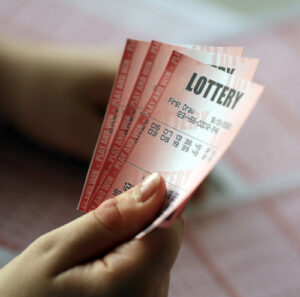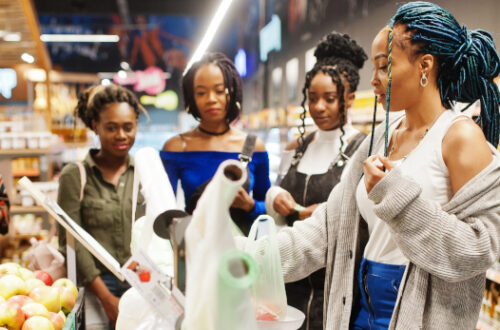
The Love Letter and the Lotto Ticket
It starts with a message. Not a handwritten letter scented with longing, but a DM sent at 2, 03 a.m. Maybe it’s “Hey” or “u up?” or a fire emoji dropped into a story. In 2025, this is how risk begins, not in candlelight, but in screenlight. Romance and gambling have always shared a bloodline. Both hinge on luck. Both make promises they can’t always keep. And both, when they go wrong, can leave you worse than broke. But lately, something’s shifted. In a world powered by dating apps, side hustles, and fast payouts, love is no longer the slow burn. It’s a wager. Swipe right, bet big, hope for the best.
We live in an economy where chance is the new currency. Relationships no longer grow in time, they spark in moments, vanish in days. A single message can trigger a dopamine hit just as potent as a near-miss on a slot machine. People chase connections like jackpots, hoping to strike it lucky in the digital noise. But the house always wins.
Take the lotto ticket. It used to be a symbol of dreams. R10, and maybe your life changes. But these days, it feels like a metaphor for dating itself. You invest in a stranger. You pick your numbers, height, job, music taste, vibes. You imagine what life could look like on the other side of the odds. You hold that ticket close, not for what it is, but what it promises.
And when it doesn’t work out? You tear it up quietly. Just another failed bet. No harm. No foul. Try again tomorrow.
But somewhere between the Tinder bios and the shared Uber rides, the love letter got lost. The real one. The kind that wasn’t designed for virality. The kind written slowly, deliberately, full of awkward sentences and real stakes. You don’t find many of those anymore. Not when attention is the most expensive thing we can give.
Still, the desire hasn’t changed. People want to be seen, to be chosen, to feel golden. They want someone who looks at them not like a risk, but a reward. But when your self-worth is tied to likes, views, or payout screens, intimacy becomes transactional. You start measuring affection the way gamblers measure wins, in quick highs, not deep truths.
The romance economy has rules no one talks about. Play it cool. Don’t double text. Ghost if it gets too real. Never catch feelings first. But beneath all that is fear. Fear of losing. Fear of being the one who wanted more. And so we hedge our bets. Keep our options open. Swipe even when we’re content. Spin again. Scroll again. Just in case.
 The crossover between risk and romance becomes clearest at night. Midnight chats. Quiet confessions. Screens lit in dark rooms. It’s in these moments, when the world feels a bit quieter, that people make the most impulsive decisions. They bet on someone new. They text someone old. They click “deposit” on a casino app or hit send on a message they swore they’d never write. It’s not about logic. It’s about hope.
The crossover between risk and romance becomes clearest at night. Midnight chats. Quiet confessions. Screens lit in dark rooms. It’s in these moments, when the world feels a bit quieter, that people make the most impulsive decisions. They bet on someone new. They text someone old. They click “deposit” on a casino app or hit send on a message they swore they’d never write. It’s not about logic. It’s about hope.
Hope is dangerous. But it’s also the engine behind both love and gambling. That belief that this time will be different. That maybe this one will stick. That maybe your luck, finally, will turn.
In South Africa, where cost-of-living pressures tighten and dreamers multiply, this dynamic takes on a sharper edge. For many, love and money are bound tightly. You don’t just want a partner, you want a partner with potential. Stability. Hustle. There’s a reason bios include jobs, side gigs, crypto portfolios. And there’s a reason many still play the lotto every week, not because they expect to win, but because they need to believe something can.
Romance in the age of risk isn’t always bleak. Sometimes it’s bold. Unapologetic. Real. When two people meet in the noise and somehow still choose each other, without filters, without algorithms, it feels almost rebellious. Like beating the odds. But that’s rare. Most of the time, love looks more like strategy. Curated profiles. Careful replies. Even a little manipulation. And if it doesn’t pay off? Move on. Place a new bet.
We’ve come a long way from handwritten declarations. But the core ache remains the same. We want connection that feels personal, not programmed. We want moments that linger, not vanish. We want to be chosen without performance. But in a world that prizes instant gratification, slow love feels like a gamble few are willing to take.
So the love letter and the lotto ticket sit side by side. One is nostalgia. The other is now. One asks for honesty. The other tempts with possibility. And most of us, if we’re honest, keep both close, just in case. Because whether you’re sending a message or buying a chance at millions, it’s all the same game in the end. We’re hoping for something better. Something lasting. Something golden.
Even if it costs us more than we planned to risk.




